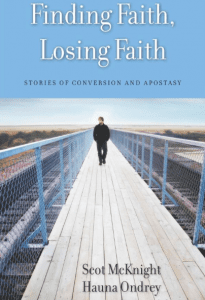From Larry Alex Taunton, at The Atlantic (HT: TG):
Someone with plenty of experience conversing with those who have left the faith for atheism, Taunton lists the results of some research on why folks walk away. Worth your read and response.
It has been my privilege to address college students all over the world, usually as one defending the Christian worldview. These events typically attract large numbers of atheists. I like that. I find talking to people who disagree with me much more stimulating than those gatherings that feel a bit too much like a political party convention, and the exchanges with these students are mostly thoughtful and respectful. At some point, I like to ask them a sincere question:
What led you to become an atheist?…
To gain some insight, we launched a nationwide campaign to interview college students who are members of Secular Student Alliances (SSA) or Freethought Societies (FS). These college groups are the atheist equivalents to Campus Crusade: They meet regularly for fellowship, encourage one another in their (un)belief, and even proselytize. They are people who are not merely irreligious; they are actively, determinedly irreligious.
Using the Fixed Point Foundation website, email, my Twitter, and my Facebook page, we contacted the leaders of these groups and asked if they and their fellow members would participate in our study. To our surprise, we received a flood of enquiries. Students ranging from Stanford University to the University of Alabama-Birmingham, from Northwestern to Portland State volunteered to talk to us. The rules were simple: Tell us your journey to unbelief. It was not our purpose to dispute their stories or to debate the merits of their views. Not then, anyway. We just wanted to listen to what they had to say. And what they had to say startled us….
They had attended church
The mission and message of their churches was vague
They felt their churches offered superficial answers to life’s difficult questions
They expressed their respect for those ministers who took the Bible seriously
Ages 14-17 were decisive
The decision to embrace unbelief was often an emotional one
The internet factored heavily into their conversion to atheism











